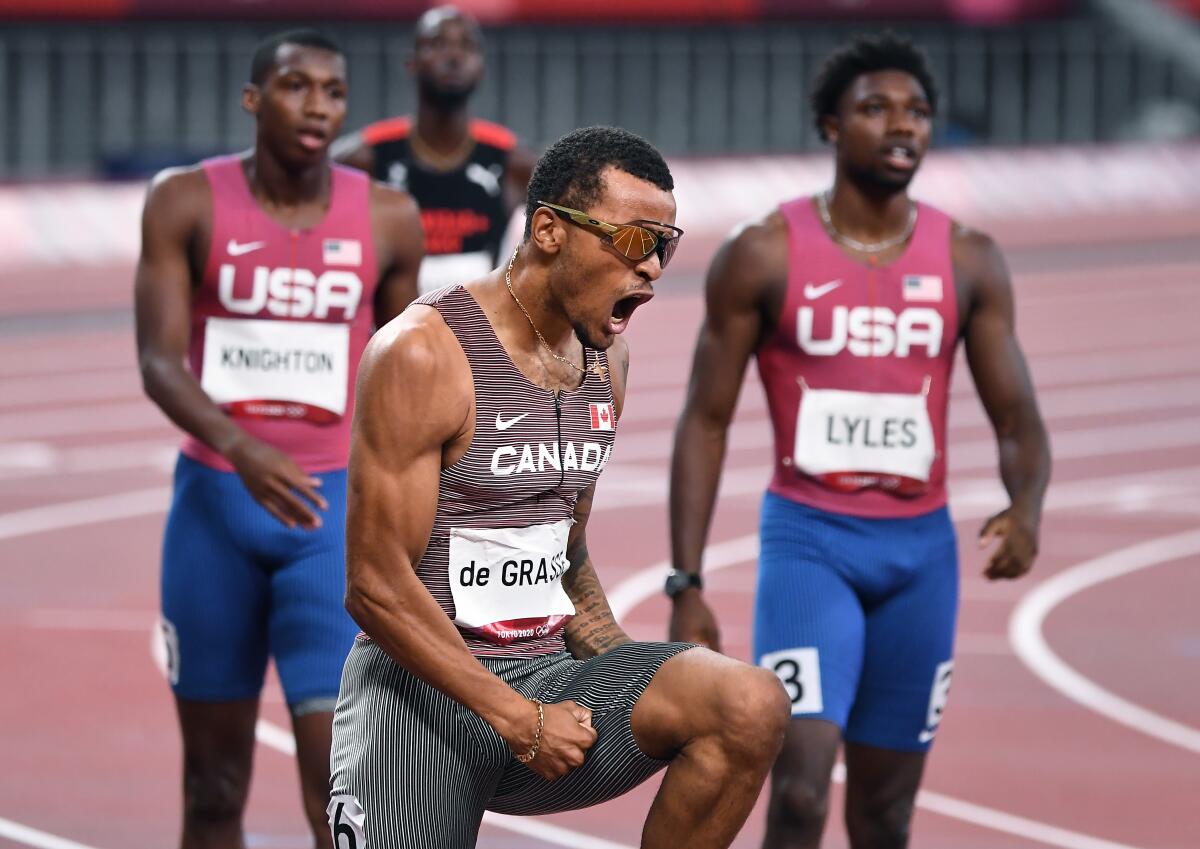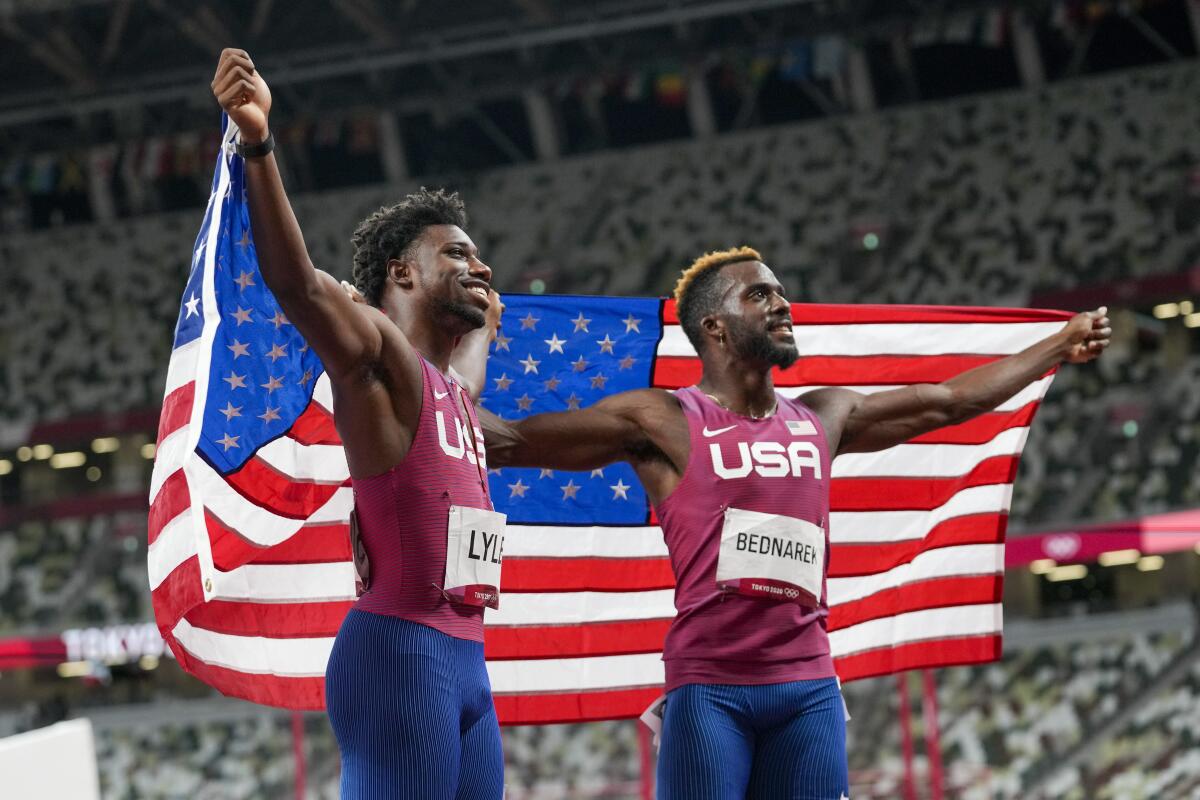Canada’s Andre De Grasse wins 200-meter gold; U.S. takes silver and bronze

TOKYO — Noah Lyles did not win the race.
The reigning world champion in the 200 meters could not deny Canada’s Andre De Grasse from earning the Olympic gold medal in the event on Wednesday night at Olympic Stadium.
De Grasse, who competed for USC in 2015, finished in 19.62 seconds to win his first gold medal. Kenny Bednarek of the United States won the silver medal in 19.68. Lyles, who finished in 19.74, took bronze.
But Lyles may have won the night.
Much of the spotlight at these Games has been on athletes’ mental health issues. Before he arrived in Tokyo, Lyles spoke openly about his journey through depression.
U.S. gymnast Simone Biles pulls out of two events at the Tokyo Olympics because of mental health issues. Other athletes understand the struggle.
That was not his intent during a post-race news conference, but about midway through a 16-minute meeting with reporters he choked up talking about his younger brother Josephus’ dream to compete in the Olympics.
After gathering himself, he was asked about his mental health journey.
“If I told the whole story,” he said, “we’d be here for an hour.”

Instead, Lyles eloquently spoke about his struggles and stressed that others who needed help should seek it out.
“Somebody asked me why I told people on Twitter that I was on antidepressants — it was truthfully for the idea that I had taken something and it made me feel better,” he said. “And I knew there were a lot of people out there like me who were too scared to say something or even start that journey.
“And I wanted them to know, ‘If you guys see me in a big light, I want you to know it’s OK to not feel good, and you can go out and talk to somebody professionally, or even get on medication, because this is a serious issue, and you don’t want to wake up one day and just think, ‘You know I don’t want to be here anymore.’”
Asked if his willingness to discuss mental health openly had made it easier for more men to seek help, Lyles said he did not know how many people he had affected.
“But I’ve definitely got a lot of people who’ve reached out to me and said it’s helped them,” he said. “And I guess even affecting one person is the goal.”
More to Read
Go beyond the scoreboard
Get the latest on L.A.'s teams in the daily Sports Report newsletter.
You may occasionally receive promotional content from the Los Angeles Times.









